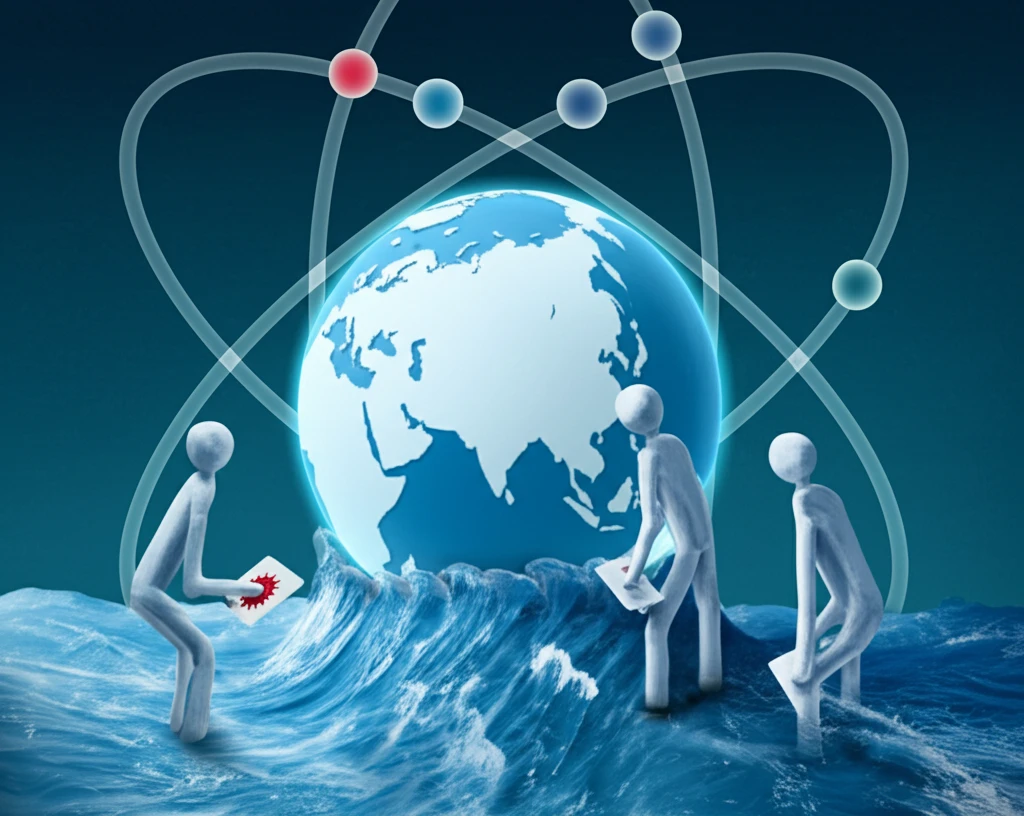
Fukushima's Fallout: Can Game Theory Help Us Understand the Nuclear Wastewater Dilemma?
"A new study uses time-delayed game strategy to analyze the complex decisions surrounding Japan's nuclear wastewater discharge and its international implications."
On August 24, 2023, the Japanese government officially began releasing treated radioactive water from the Fukushima Daiichi Nuclear Power Plant into the Pacific Ocean. This decision ignited a firestorm of international debate, raising critical questions about environmental safety, transparency, and the long-term implications for marine ecosystems and human health.
While Japan asserts the water is treated and safe, neighboring countries and environmental groups remain deeply concerned. This complex situation involves multiple stakeholders with conflicting interests, from Japan's economic considerations to the environmental protection concerns of other nations and the oversight role of the International Atomic Energy Agency (IAEA).
To navigate this intricate web of relationships, a recent study employs time-delayed game theory to analyze the strategic interactions between Japan, other nations, and the IAEA. This innovative approach considers the real-world delays in decision-making, offering valuable insights into the potential outcomes and the pursuit of optimal strategies for all involved.
Decoding the Fukushima Dilemma: How Does Game Theory Help?

Game theory is a mathematical framework used to analyze strategic interactions between rational decision-makers. In this context, it helps to understand how Japan, other countries, and the IAEA might act, considering each other's potential moves and the potential consequences.
- Japan: Considers costs of storage vs. discharge, impact on international reputation.
- Other Nations: Weigh environmental and economic risks against the costs of sanctions.
- IAEA: Balances nuclear safety promotion with environmental protection and public health responsibilities.
Finding a Path Forward: Policy Recommendations
The study offers several policy recommendations to navigate the Fukushima wastewater challenge. It emphasizes the importance of enhanced international cooperation, urging countries to openly share data and information about marine pollution to reduce information asymmetry and promote informed decision-making. The research also highlights the need for continued investigation into the impact of time-lag effects and the exploration of distributed time-lag models for greater accuracy.
